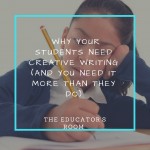Reading interventionists, educators, administrators, and publishers have a terminology problem. In contrast to many educators, we in the field of reading have come to accept the normalized use of terms that are not student- and family-positive. They are terms that have emerged from therapeutic approaches to adult addiction. In the context of the teaching of reading to students with diverse backgrounds and needs, these terms generate hyperbole and represent students’ needs inaccurately. Furthermore, their use reinforces systemic racism and classism in our schools.
The Problem
First, the word “intervention” indicates a serious, last-option-available meeting with an out-of-control loved one, client, or patient. Since the introduction of the “Response to Intervention” framework (ca. 2004), and Fountas/Pinnell’s popular “Leveled Literacy Intervention,” (2009) many reading specialists nationwide have been rebranded as “Interventionists” by their districts. Through the use of addiction-centered language, Fountas and Pinnell follow the path chosen by Marie Clay, who designed the “Reading Recovery” curriculum in the 1970s. If an adult says “I’m in recovery,” we know that they struggle with addiction or a related condition and that the danger of relapse is real. Is this really a term that should be used to describe a 6-year-old’s reading?
Once we approach these terminological choices and analogies critically, we find them everywhere in our schools today. In addition to Fountas/Pinnell’s “Intervention” and Clay’s “Recovery”, there is also New York City’s “Reading Rescue” (1993). We even now frame curricular stages as “spiraling,” intimating that students who must rely on the returning elements are somehow out of control. What we provide, formerly known as “education,” is now referred to as “services,” bringing to mind social services. Are these “services” really something available to all on an equitable basis? Or do they tacitly stigmatize?
Possible Causes
Choosing these terms and normalizing them is a response to data. It is nonetheless an alarmist response. There are many studies pointing to a direct link between early reading success and later positive academic and life outcomes. It is possible that Clay and those adopting similar terminology may have borrowed the parlance of addiction in an effort to communicate what they believed to be an urgent need for parents to take “the reading gap” seriously.
As any critical thinker knows, correlation does not prove causation, and these studies may be observing not a reading gap, but an opportunity gap. If that is the case, then by using these alarmist analogies, educators are blaming the victim by subscribing to a deficit mindset. To speak of small children using the vocabulary of addiction brings to mind “bootstraps” and its cousins “grit” and “resilience,” other manifestations of the deficit mindset that also do more harm than good.
Lastly, and most subtly, we must consider a possible link to the “adultification” of Black children (and potentially other underrepresented groups) in our education system. These terms can project adult-oriented blame, shame, culpability, and stigma onto Black and other children. Authors and their publishers think long and hard before naming a curriculum or branding its features. They are well aware that Black, brown, and poor children are overrepresented among students in the programs to which they are selling. Considering the white bias documented in one of these curricula by Thomas and Dyches (2019), it is reasonable to conclude that adultification and its attendant white savior narratives may play additional roles in this issue.
Solutions
Whatever the intentions behind the choice to deploy the language of addiction in reading education, we must reevaluate these stigmatizing analogies and eliminate the ill effects that they produce.
- Educators should consciously choose “person-centered” language when referring to all other people- and especially children. Positive, affirming, and humanizing language must be normalized. Examples: Refer to your students as “striving” readers rather than “struggling” readers. If you pull them from their homeroom for lessons, refer to those lessons as “book club” rather than “services” or “intervention.”
- School boards and textbook selection committees should reject any curriculum that uses the language of addiction in its title or materials. Insist on a very careful review, including educator and parent input, of materials before adopting them. Adopt a “know better, do better” policy should issues arise in the future with chosen curricula.
- Reading Specialists, please insist on being addressed as such, not “Interventionists.”
- If you are truly concerned that a family is not taking a child’s reading seriously, schedule a parent-teacher conference to share that information and focus on forming parent partnerships. Aim to listen more than you speak.
- Advocate for the training, hiring, and promotion of more minority reading specialists.
- Dig deeper for the actual causes of the reading gap rather than simply adopting preformulated concepts.
Editor’s Note: If you enjoyed this article, please become a Patreon supporter by clicking here.
 Patricia A. Hannon, MA, is an educator at the Dept. of Defense Overseas Schools and is posted in Hohenfels, Germany. She is a 2020 Horace Mann Award for Teaching Excellence Recipient and a Museum Teacher Fellow of the US Holocaust Memorial Museum. Patricia currently serves as the European Human and Civil Rights Coordinator for the Federal Education Association. This article does not represent information or views of the US Dept. of Defense.”
Patricia A. Hannon, MA, is an educator at the Dept. of Defense Overseas Schools and is posted in Hohenfels, Germany. She is a 2020 Horace Mann Award for Teaching Excellence Recipient and a Museum Teacher Fellow of the US Holocaust Memorial Museum. Patricia currently serves as the European Human and Civil Rights Coordinator for the Federal Education Association. This article does not represent information or views of the US Dept. of Defense.”







Well written.
thank you!
Thank you for writing this article. I have been reading Ladson-Billings as well Paris & Alim lately. This falls right in line with Culturally Relevant/Sustaining Pedagogy. Thank you for broadening my knowledge of the addiction-based origin of the words.
I agree, #wordsmatter
Thank you for your comments! Yes, our vocabulary absolutely does matter. The question I really struggle with is how to get our institutions and publishing companies to make the necessary changes, too!
Well stated, thank you for shining a light on this issue. Hopefully change will be addressed soon.